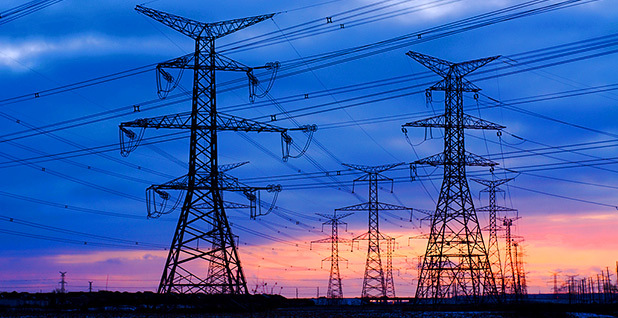Travis Fisher, a political appointee at the Department of Energy, will lead a high-profile study that Energy Secretary Rick Perry ordered this week on what role environmental policies are playing in recent coal and nuclear plant closures, according to multiple sources.
Fisher will help analyze the way baseload power is dispatched and compensated and the effect of “regulatory burdens” past administrations introduced to decrease coal-fired generation.
Perry told his chief of staff, Brian McCormack, in a Friday memo that the study — due in mid-June — should also analyze “market-distorting effects of federal subsidies that boost one form of energy at the expense of others.”
DOE did not immediately respond to a request for comment on Fisher’s role, but he is listed as a senior adviser in the Office of Energy Efficiency and Renewable Energy in the agency’s internal registry.
Fisher’s role is significant given his past work as an economist at the Federal Energy Regulatory Commission and his past public statements about the effects of federal subsidies and rules as an economist for the Institute for Energy Research, a nonprofit energy think tank that advocates “free-market” energy and environmental policy.
Advertisement
Fisher worked for IER for three years beginning in 2013 before joining DOE. Prior to that, he worked at FERC for seven years after completing an internship at the John Locke Foundation, according to his online bio.
While at IER, Fisher penned a 2014 op-ed in The Hill, titled “Biggest threat to America’s power grid is bad policy,” in which he warned that federal regulations, the wind production tax credit and state renewable mandates were threatening grid reliability.
Fisher warned that the U.S. EPA clean air rules posed a threat to coal-fired power plants, and that the agency was “coming after” gas plants as anti-nuclear activists threatened reactor closures. “These closings pose a serious threat to the grid as we know it,” Fisher wrote. “Forcing reliable sources of energy off the grid will only increase the risk of blackouts and raise electricity prices for households across America.
“But excessive regulation isn’t the only issue facing the grid,” Fisher continued. “Other policies undermine our electric system by subsidizing unreliable sources of power like wind and solar, which provided around 4 percent of our electricity generation last year. Subsidizing unreliable generation while wiping out reliable sources is a huge gamble — a real-time experiment to see whether or not we can keep the lights on.”
Fisher has blasted tech giants like Facebook, Google and Apple for asserting the achievement of running on only renewable power, calling such claims “misleading and deceptive.”
In an IER blog post in 2015, Fisher said companies connecting to the electric grid cannot claim to be using only green energy given the system generates power from conventional coal, gas and nuclear power plants. “Those who claim to be powered 100 percent by renewable sources of electricity are hoping people don’t know how the grid works,” Fisher wrote.
Fisher also articulated his argument during an interview with Alex Epstein, president and founder of the Center for Industrial Progress.
Perry’s request for the study appears to stem from a meeting earlier this month he had with other energy ministers from the Group of Seven countries, where they spoke about the need for an energy transition with fuel diversity.
Perry in the memo outlines his concern about baseload power, where coal and nuclear power plants run at a constant output. Subsidies that spur the addition of more wavering solar and wind power are hurting baseload power plants, forcing them to close, which in turn threatens grid stability, according to Perry (Climatewire, April 18).











